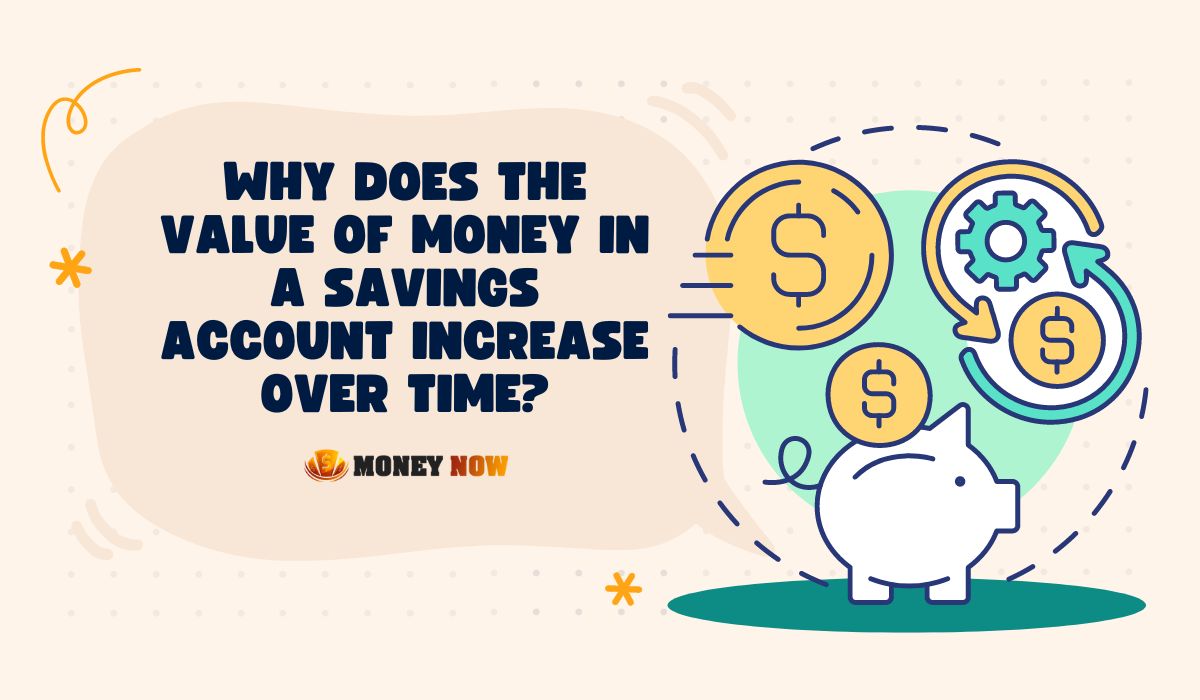
Ever wondered, "Why does the value of money in a savings account increase over time?" At first glance, it might seem like your money is just sitting there, but in reality, it's quietly working in your favor, growing with each passing day. This financial growth is not magic but the result of interest, a reward banks offer for entrusting your money to them. Interest, especially when compounded, ensures that your savings don't just remain stagnant but actually appreciate in value.
Curious to learn more about how your savings can work harder for you? Dive deeper into the mechanics of interest, the magic of compounding, and strategies to maximize your financial growth.
Interest is the key driver behind the increase in the value of money in a savings account. It is essentially a payment from the bank to the account holder for the privilege of using their money. Banks take the money deposited by savers and lend it to borrowers, charging them interest. A portion of this interest is then paid to the savers as an incentive to keep their funds in the bank.
Interest can be simple or compounded, with the latter being more beneficial to savers.
Simple Interest is calculated only on the principal amount, or the initial amount of money deposited into the account. For example, if you deposit $1,000 in an account with an annual simple interest rate of 5%, you would earn $50 in interest per year.
Compounded Interest, on the other hand, means earning interest on both the principal and the accumulated interest over time. This can significantly increase the value of your savings, as each interest payment adds to the principal, forming a new base for the next calculation of interest.
The true magic of compounding lies in its frequency. The principle that "the more frequent the compounding, the higher the amount of money in the account will grow" holds true because each cycle of compounding builds on the last, exponentially increasing the growth rate of the savings. This effect is akin to a snowball rolling downhill, gathering more snow and momentum with every turn. Whether compounding occurs daily, monthly, quarterly, or annually, each additional period of compounding adds a layer of interest to the principal, thus expanding the base on which future interest is calculated.
This compounding effect can be particularly impactful over long periods. For young savers or those with a long-term saving horizon, the difference made by high-frequency compounding can be substantial, turning modest savings into significant sums. It illustrates the importance of starting to save early and choosing savings accounts with favorable compounding terms.
Several factors can influence how much and how quickly the value of money in a savings account can increase:
Interest Rate: The higher the rate, the faster your money grows. Rates can vary significantly between banks and types of savings accounts.
Frequency of Compounding: Accounts with more frequent compounding periods (e.g., monthly vs. annually) can accumulate wealth faster due to the effect of earning interest on interest more frequently.
Time: The longer money is left to grow in a savings account, the more significant the impact of compounding interest. Over many years, even small deposits can grow substantially.
While the mechanics of interest and compounding can significantly increase the value of money in a savings account over time, real-world factors like inflation can impact the purchasing power of that money. Inflation erodes the value of money, meaning that even though the numerical balance in the savings account grows, the actual value of that money in terms of what it can buy may not increase as much. It's important to compare the interest rate of the savings account against the rate of inflation to understand the real growth of your savings.
The question, "Why does the value of money in a savings account increase over time?" finds its answer in the principles of interest and the power of compounding. These financial mechanisms work together to ensure that savings not only remain secure but also grow, transforming static deposits into dynamic assets. Factors such as the interest rate, the frequency of compounding, and the length of time the money is saved all play crucial roles in determining the rate of this growth. However, savers must also consider real-world elements like inflation, which can affect the true value of their accumulated wealth. By understanding these dynamics, individuals can make informed decisions to optimize their savings and ensure financial growth over time.
Unlock the secret to doubling your money with our comprehensive guide. Discover effective strategies and insights to maximize your financial growth today.
